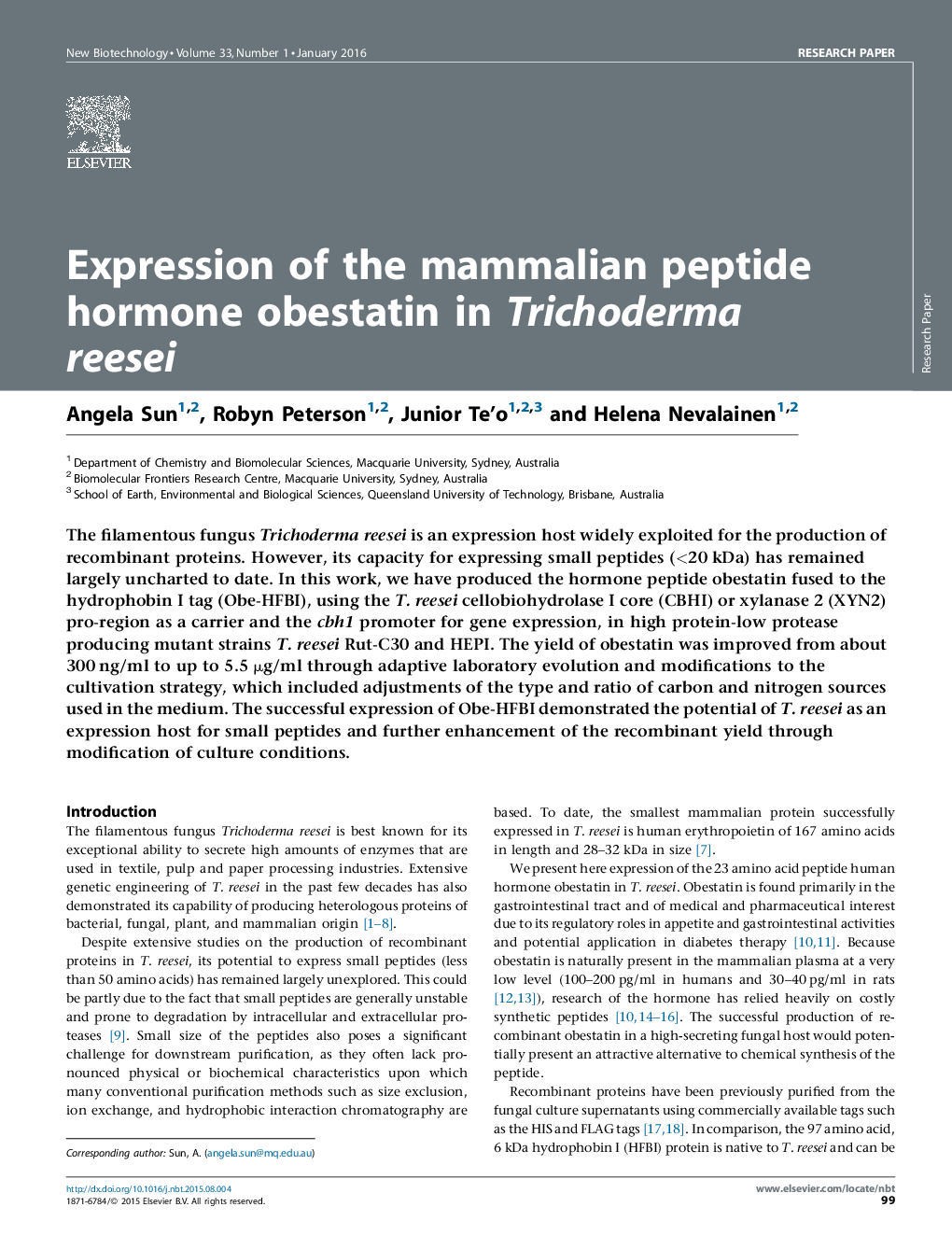| Article ID | Journal | Published Year | Pages | File Type |
|---|---|---|---|---|
| 33041 | New Biotechnology | 2016 | 8 Pages |
•The potential of T. reesei as an expression host for small peptides has been demonstrated by recombinant expression of obestatin.•Yield of the recombinant obestatin was improved by 18-fold to 5.5 μg/ml through customizing cultivation conditions.•At the time of writing, the 23 a.a obestatin is the smallest mammalian peptide hormone expressed in T. reesei.
The filamentous fungus Trichoderma reesei is an expression host widely exploited for the production of recombinant proteins. However, its capacity for expressing small peptides (<20 kDa) has remained largely uncharted to date. In this work, we have produced the hormone peptide obestatin fused to the hydrophobin I tag (Obe-HFBI), using the T. reesei cellobiohydrolase I core (CBHI) or xylanase 2 (XYN2) pro-region as a carrier and the cbh1 promoter for gene expression, in high protein-low protease producing mutant strains T. reesei Rut-C30 and HEPI. The yield of obestatin was improved from about 300 ng/ml to up to 5.5 μg/ml through adaptive laboratory evolution and modifications to the cultivation strategy, which included adjustments of the type and ratio of carbon and nitrogen sources used in the medium. The successful expression of Obe-HFBI demonstrated the potential of T. reesei as an expression host for small peptides and further enhancement of the recombinant yield through modification of culture conditions.
